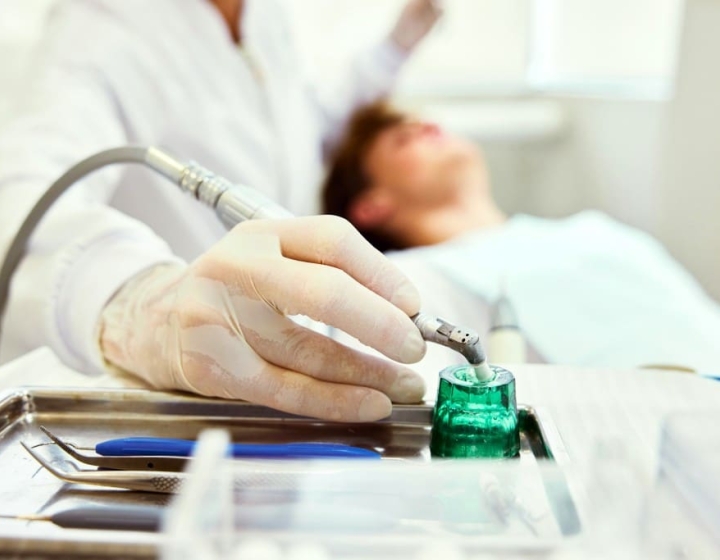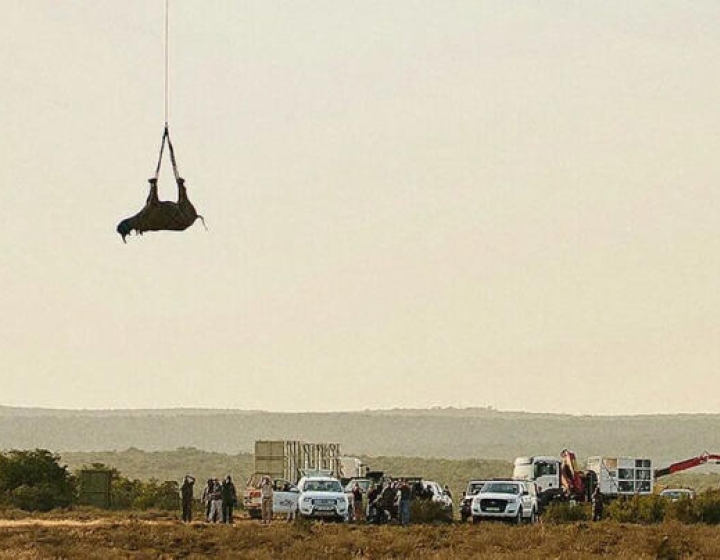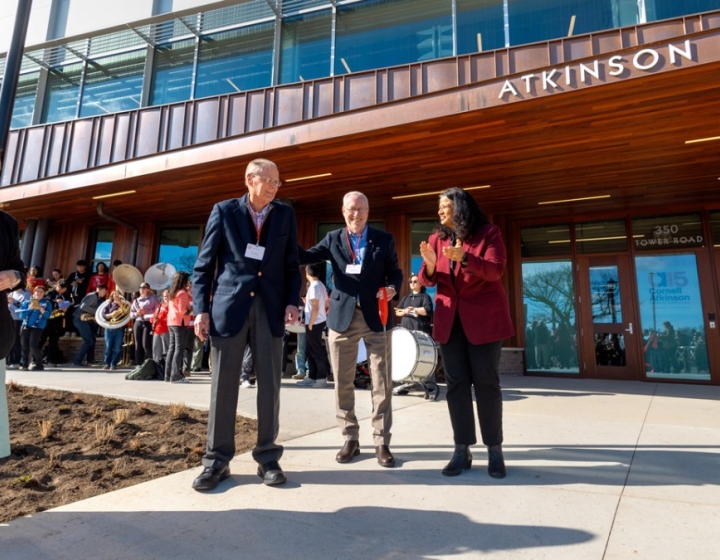Cornell collaboration with leading regenerative medicine center
 Bridging two leading health institutions, scientists and veterinarians at Cornell’s College of Veterinary Medicine are partnering with renowned human medicine innovators at the McGowan Institute for Regenerative Medicine in Pittsburg, Pa., to further their shared quest — advancing healing techniques and technologies for animals and humans.
Bridging two leading health institutions, scientists and veterinarians at Cornell’s College of Veterinary Medicine are partnering with renowned human medicine innovators at the McGowan Institute for Regenerative Medicine in Pittsburg, Pa., to further their shared quest — advancing healing techniques and technologies for animals and humans.
Several faculty in Cornell’s College of Veterinary Medicine work to realize the potential of regenerative techniques – such as tissue engineering, cellular therapies, and artificial organ devices – in repairing damaged tissues and organs. The McGowan Institute is dedicated to the same goal. In this multifaceted collaboration, professionals from both institutions have begun exchanging research, techniques, and ideas to advance the science and application of tissue engineering and regenerative medicine across species.
“This is a natural partnership,” said Dr. Jon Cheetham, large animal surgeon and equine researcher in Cornell’s Department of Clinical Sciences. “We have expertise in pre-clinical animal models of human disease, and special resources for research — like looking at laryngeal function over time in horses on a treadmill or taking MRIs of the temporomandibular joint in pigs. We also have experts in developmental biology. That’s important because aspects of regenerative medicine attempt to mimic the early stages of development, when true regeneration, not just repair, can happen.”
 Meanwhile, the McGowan Institute’s regenerative expertise has provided a rich opportunity for collaboration with members of the Veterinary College and a number of research partnerships between Cornell and McGowan have spawned shared grant funding. For example, Cheetham has just received a three year NIH award to explore new techniques targeted at improving nerve repair with co-investigators from the McGowan Institute. This research will explore regenerative techniques to heal debilitating nerve injuries in people and restore laryngeal function in people, dogs and horses
Meanwhile, the McGowan Institute’s regenerative expertise has provided a rich opportunity for collaboration with members of the Veterinary College and a number of research partnerships between Cornell and McGowan have spawned shared grant funding. For example, Cheetham has just received a three year NIH award to explore new techniques targeted at improving nerve repair with co-investigators from the McGowan Institute. This research will explore regenerative techniques to heal debilitating nerve injuries in people and restore laryngeal function in people, dogs and horses
Cornell faculty and McGowan scientists are now also working together to use regeneration techniques in the meniscus, a jaw joint in which tears can affect chewing and speech. Expertize provided by veterinary dentist Dr. Jennifer Rawlinson, an expert in the meniscus across species has been invaluable in this project.
In the collaboration’s most recent installment, the McGowan Institute’s Deputy Director Stephen Badylak, D.V.M., Ph.D., M.D., travelled to Cornell in August to share and explain the science behind his groundbreaking advances in regenerative medicine, techniques that have healed people traditional medicine has deemed very difficult to treat.
 Badylak gave his talk “How regenerative is regenerative medicine?” as keynote speaker in Cornell’s daylong 10th Annual Biological and Biomedical Sciences Graduate program Symposium. More than 90 students, faculty, and staff attended and had opportunities to ask questions and interact with him.
Badylak gave his talk “How regenerative is regenerative medicine?” as keynote speaker in Cornell’s daylong 10th Annual Biological and Biomedical Sciences Graduate program Symposium. More than 90 students, faculty, and staff attended and had opportunities to ask questions and interact with him.
Since Cheetham began orchestrating the collaboration in 2011, many such fruitful exchanges have occurred, including retreats, educational exchanges, continuing education, and partnerships in which research was conducted jointly.





